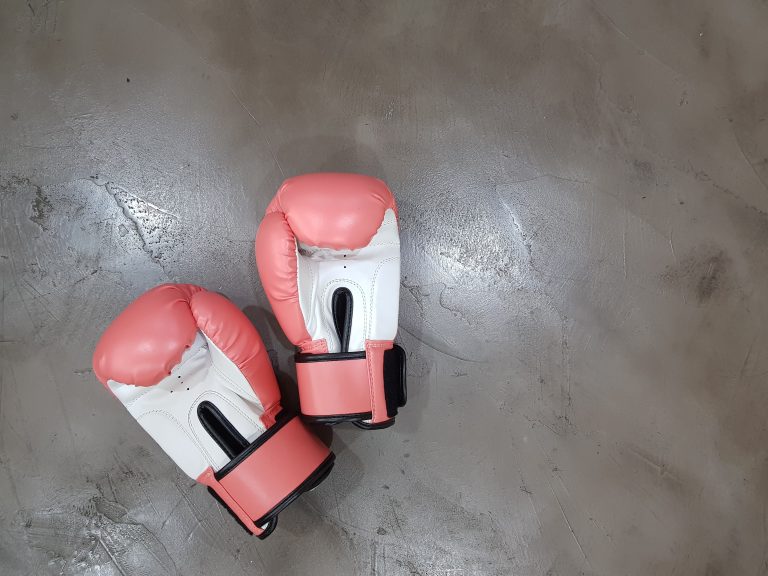The Benefits of Karate Training: How It Can Improve Your Health and Wellness
Karate, which originated in Japan, is a popular martial art form that has become a source of wellbeing and self-improvement for millions of people around the world. This ancient form of physical and mental training provides many physical and mental benefits, from enhancing aerobic fitness and physical strength to improving focus and concentration. In this article, we’ll explore the key benefits of karate training and discuss some of the ways it can improve your health and wellbeing.
What Is Karate?
Karate, also known as kara-tay, is a form of unarmed combat that involves punches, kicks, shoulder strikes, joint locks, and other techniques. It was developed in Okinawa, Japan, in the mid-nineteenth century by martial artists from China, Okinawa, and Japan. Karate places emphasis on self-defense and honing one’s physical and mental abilities. It’s a self-defense system that teaches practitioners how to use range, angles, and timing to effectively defend themselves and others.
Benefits of Karate Training
Karate is an effective form of physical activity that offers numerous physical, mental, and emotional health benefits. Here are some of the key benefits of karate training:
1. Enhances Physical Fitness
Karate involves aerobic and anaerobic exercise which can help to improve cardiovascular fitness as well as build strength and flexibility. Punching and kicking also help to increase speed and coordination. Karate is a great form of exercise for those looking to get in shape without relying on weights or gym machines.
2. Improves Focus and Concentration
For karate practitioners, concentration requires focus on the task at hand. During karate drills and sparring, practitioners learn to focus on the present moment by developing an awareness of what their body is doing and how they can improve their technique, rather than concentrating on the outcome or how their opponent is going to react. This practice encourages practitioners to gain confidence in their own abilities, as well as developing discipline in terms of focus and concentration.
3. Enhances Self-Confidence
Karate is a great way to challenge your limitation and build self-confidence. This can be attributed to the fact that practitioners train with full-contact sparring where they face an opponent that’s just as strong as them. This helps practitioners develop self-defense skills, confidence in their abilities, and courage when faced with adversity.
4. Stress Management
Karate can be beneficial for stress management. The combination of physical activity and mental training provides a way to alleviate stress as well as practice mindfulness skills. With regular practice, Karate can help practitioners become more mindful when faced with challenging situations and become better-equipped to cope with life’s stressors.
5. Mental Health Benefits
Regular participation in karate can significantly improve mental health by promoting relaxation, alleviating anxiety and depression, and increasing self-awareness. Karate also allows practitioners to learn self-control and discipline which can help to reduce guilt and worry about perceived past failures.
Conclusion
Karate is a great way to improve physical fitness, increase focus and concentration, build self-confidence, manage stress, and enjoy mental health benefits. Practitioners also learn valuable lessons such as self-control and discipline that can be applied in their everyday lives. If you’re looking for a way to get fit, learn self-defense skills, reduce stress levels, and improve your mental health then karate training could be the perfect solution for you!
Sources:
- What Is Karate? (WebMD)
- The Benefits of Karate (American Council on Exercise)
- What Can Karate Do for Your Mental Health? (American Psychological Association)
The Benefits of Karate Training: How It Can Improve Your Health and Wellness
Karate is a traditional Japanese martial art that involves a combination of movements, exercises, and techniques meant for self-defense. Today, it has become one of the most popular forms of martial arts practiced worldwide. Karate not only promotes physical fitness and strength but also has a significant impact on emotional and mental well-being. In this blog post, we will discuss some of the most frequently asked questions about the benefits of karate training.
1. What are the physical benefits of karate training?
Karate training provides many physical benefits that affect the body, including:
– Increased strength and stamina: Karate training is a great way to increase strength and stamina. It involves full-body workouts that target various muscle groups, including the core, arms, legs, and back.
– Improved balance and coordination: Karate training involves complex movements that require balance and coordination. It helps improve your ability to maintain your body balance and move more smoothly.
– Reduced body fat and weight loss: Karate training is a high-intensity workout that burns a significant number of calories. It helps people reduce body fat and lose weight over time.
– Improved cardiovascular health: Karate training is an aerobic activity that improves cardiovascular health. It helps strengthen the heart and reduce the risk of heart diseases.
2. How does karate training improve mental health?
Karate training also has many psychological and emotional benefits that enhance mental health. These benefits include:
– Reduced stress and anxiety: Karate training provides an excellent outlet to release stress and anxiety. It helps reduce cortisol levels, a stress hormone, and releases endorphins, which help reduce stress and improve mood.
– Improved focus and concentration: Karate training requires a high level of concentration and focus. It helps improve mental clarity and enhances the ability to focus on specific tasks.
– Boosted self-esteem and confidence: Karate training helps people develop confidence and self-esteem. It gives people a sense of accomplishment and helps them feel better about themselves.
3. Is karate training suitable for all ages and skill levels?
Yes, karate training is suitable for people of all ages and skill levels. Whether you are just starting or have been training for years, karate can be adapted to meet your needs. Many instructors specialize in teaching different age groups and skill levels.
For children, karate training can help improve motor skills, self-discipline, and self-confidence. For older adults, it is a great way to improve physical fitness, reduce stress, and maintain flexibility.
4. What safety precautions should I take when practicing karate?
Karate training involves many physical activities, so safety is a top priority. Here are some safety precautions to consider when practicing karate:
– Warm-up before training: Warm-up exercises can help reduce the risk of injuries.
– Wear proper gear: It is essential to wear proper karate gear, including uniforms and protective gear, to ensure safety during training.
– Listen to your body: Karate training can be challenging, but it is essential to listen to your body and avoid overworking yourself.
– Train with a certified instructor: Karate training requires proper instruction to ensure safety and effectiveness.
5. Can karate training help with self-defense?
Yes, karate training is an effective form of self-defense. It teaches people how to defend themselves against attackers, escape from dangerous situations, and maintain self-control.
Karate training also teaches people how to use their body weight and strength to defend themselves against attackers effectively.
Conclusion
Karate training provides many physical and emotional health benefits, including increased strength and stamina, improved balance and coordination, reduced stress and anxiety, and improved self-esteem and confidence. It is suitable for people of all ages and skill levels, and its self-defense techniques are effective. With proper practice, karate can help you achieve overall physical and emotional well-being.
Inhaltsverzeichnis






